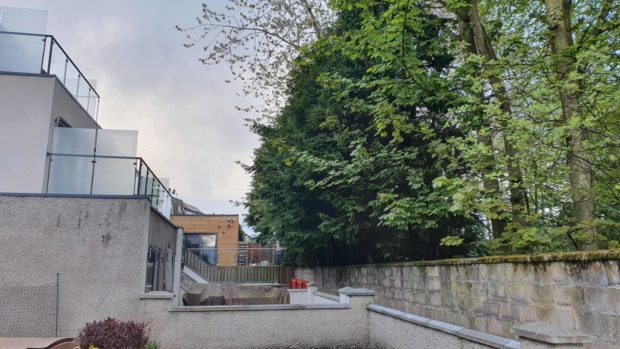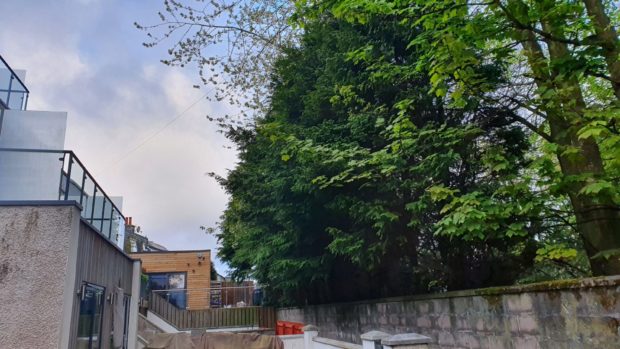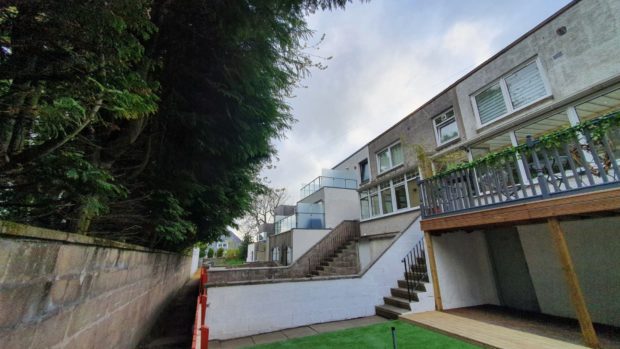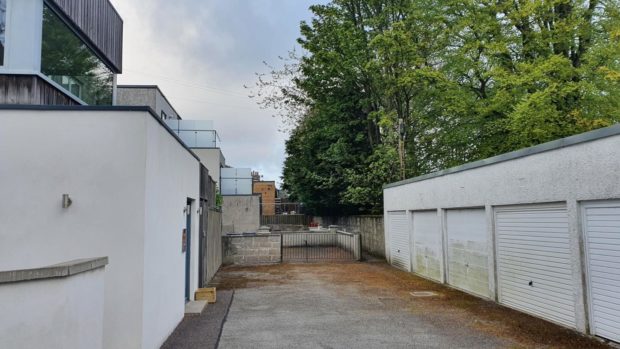An Aberdeen man has been ordered to chop down a 36ft hedge after neighbours complained it was blocking their TV signal.
Fed-up residents on King’s Gate said the leylandii belonging to company director Robert Shand, 77, made their lives a misery.
Richard Abraham teamed up with fellow neighbours to seek a legal remedy to their woes.
High hedge law
They attempted to use high hedge legislation to have the shrubbery cut down to size, but were left dismayed when Aberdeen City Council rejected the move last year.
Mr Shand’s £560,000 detached property is surrounded by trees but his increasingly exasperated neighbours insisted they formed a “solid wall” which denied their homes light and made it impossible to grow plants and grass in their gardens.
An attempt to have the feud brought to an end through mediation also failed when Mr Shand’s wife, Brenda, said that they did not wish to participate.
The four neighbours then took their fight to the Scottish Government in a last-ditch bid to have action taken on the trees.
Government has final say
A government reporter has now quashed the council decision and ordered the trees be chopped down to 8ft in height.
In his letter to the council pleading for the local authority to take action, Mr Abraham outlined the predicament the residents were left facing.
He said: “Some time ago, a line of continuous semi-evergreen trees were planted as a boundary.
“These have been allowed to grow unchecked for a while now and now reach a height of over 10m, forming a continuous line of inter-grown hedge that creates a complete barrier to sunlight.
“While we respect the wishes of Mr and Mrs Shand to privacy, we believe that the current state of growth is unreasonable.
“We are unable to grow plants on our patio and had to replace our lawn with paving as the grass kept dying due to lack of sun.
“It unduly encloses our view and creates an oppressive environment through being disproportionate in height compared to our garden space.
“It blocks our satellite signal to the extent we have had to move the dish twice as the trees continue to grow.”
Winter was made even bleaker
A letter sent by another neighbour said: “Light would be greatly improved upon in the summer months and light of any portion is very welcome during the short days of an Aberdeen winter.
“This is a clear case of putting the owner’s privacy claims above the suffering he is forcing on the applicants.
“Should the owner feel his many large mature trees that dominate the area of garden offer insufficient privacy to some portion of his garden, he is of course free to plant more, hopefully less offensive, trees.
“The height of the high hedge clearly reduces light levels as it is a solid wall.”
Hedge owner feared loss of privacy
Mr Shand claimed cutting the trees down would result in a loss of privacy and insisted that some of the trees in his garden had protected status.
He said: “Our garden is full of trees, many of which are over 100 years old and are of protected status.
“In addition there are a small number of conifer trees, which are the subject of the complaint.
“We would thus point out that the trimming of the conifer trees would have little or no effect on light levels as the many beech, sycamore, holly, horse chestnut etc trees cannot be trimmed and are in fact three to four metres taller than the conifer trees.
“In addition we would highlight that many of the tenants in the flats have balconies and a number also have roof balconies.
“If the conifer trees were trimmed, this would have a significant effect on our privacy as the balconies and roof gardens overlook our garden.”
Council dismissed complaints
Aberdeen City Council claimed the issues raised by the neighbours were “unlikely” to be resolved by reducing the height of the leylandii and said a reduction would not have an impact over summer months.
Ordering the trees be lopped, government reporter Stuart West said: “Taking all matters into consideration, including the 2019 Guidance, I conclude that the high hedge has an adverse impact on the reasonable enjoyment of the neighbouring domestic properties in relation to light loss and amenity due to the scale and overbearing nature of the high hedge.
“I have taken all matters raised into account and, on balance, there is nothing which would justify not taking action in relation to the high hedge. I therefore uphold the appeal and issue the attached high hedge notice.”
Mr Shand has until the end of September to carry out work to reduce the height of his hedge.



